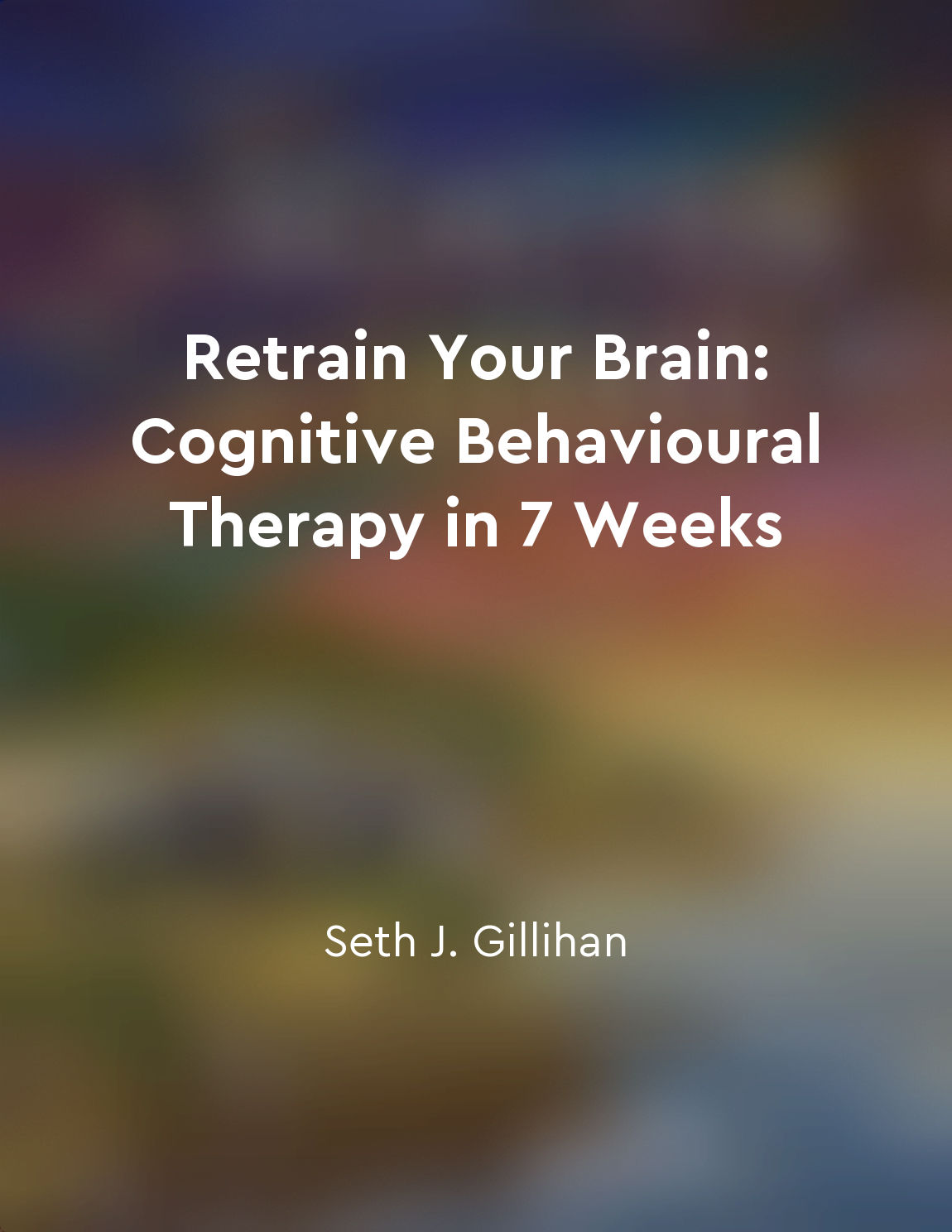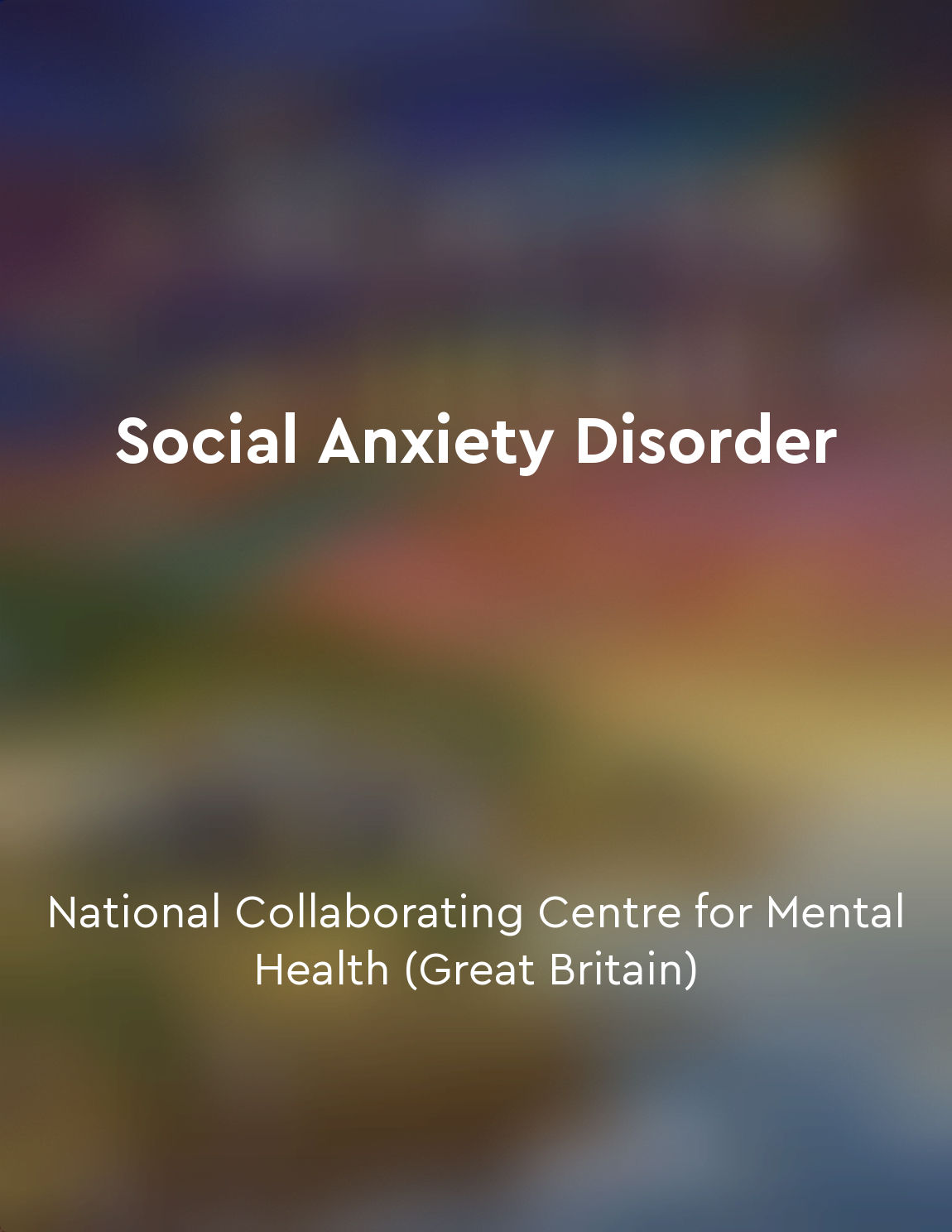Audio available in app
Addressing maladaptive behaviors is a core aspect of CBT from "summary" of Cognitive-Behavioral Therapy by Adam M. Volungis
In cognitive-behavioral therapy (CBT), addressing maladaptive behaviors is considered a fundamental component of the treatment process. Maladaptive behaviors refer to actions or responses that are not helpful or productive in a person's life. These behaviors can contribute to emotional distress, interpersonal difficulties, and overall impairment in functioning. By targeting these maladaptive behaviors, CBT aims to help individuals develop more adaptive ways of thinking and behaving. The process of addressing maladaptive behaviors in CBT typically involves identifying specific behaviors that are problematic for the individual. This may include behaviors such as avoidance, rumination, self-criticism, or substance use. Once these behaviors are identified, the therapist works with the client to understand the underlying thoughts, beliefs, and emotions that are driving these behaviors. This process helps individuals gain insight into the connections between their thoughts, feelings, and behaviors. Once the problematic behaviors and their underlying causes are identified, the therapist and client collaborate to develop strategies for modifying these behaviors. This may involve learning new coping skills, challenging negative thoughts and beliefs, or practicing new ways of responding to difficult situations. Through repeated practice and reinforcement, individuals can gradually replace maladaptive behaviors with more adaptive and effective responses.- Depression, or substance abuse. By targeting these behaviors directly, CBT helps individuals break the cycle of negative thoughts and behaviors that can perpetuate their difficulties. In this way, CBT empowers individuals to take an active role in changing their behavior patterns and improving their overall well-being.
Similar Posts

Selfesteem may be affected
When it comes to consuming pornography, one of the key things to consider is how it can impact your self-esteem. Watching porn ...

Build healthy relationships for support
To truly make progress in therapy, it's essential to have a strong support system. Building healthy relationships can provide y...

Avoid processed and sugary foods
When it comes to managing your mental health through diet, one of the key principles to follow is steering clear of processed a...

Progress may be slow, but it is important to stay committed to treatment
In the treatment of social anxiety disorder, progress may not always be quick or immediately noticeable. It is common for indiv...
Emotional responses are based on thoughts
Emotional responses are intricately linked to our thoughts. When we experience a certain emotion, it is not just a random occur...
Creating a fear hierarchy helps prioritize exposure exercises
To effectively treat anxiety disorders, it is essential to systematically address the patient's fears and anxieties. One way to...
Building a support network is encouraged in therapy
In therapy, it is important for individuals to build a support network to help them navigate through their challenges and diffi...
Traumatic brain injuries can have longterm consequences
Traumatic brain injuries are not to be taken lightly. They can have lasting effects that can impact a person's life in profound...
Learning to adapt
Adapting is a skill I have learned over the years. It is not something that comes naturally to me, but rather a process that I ...

Reframe negative beliefs with Positive Reframing
Negative beliefs can wreak havoc on our mental well-being, leading to feelings of anxiety, depression, and low self-esteem. The...

